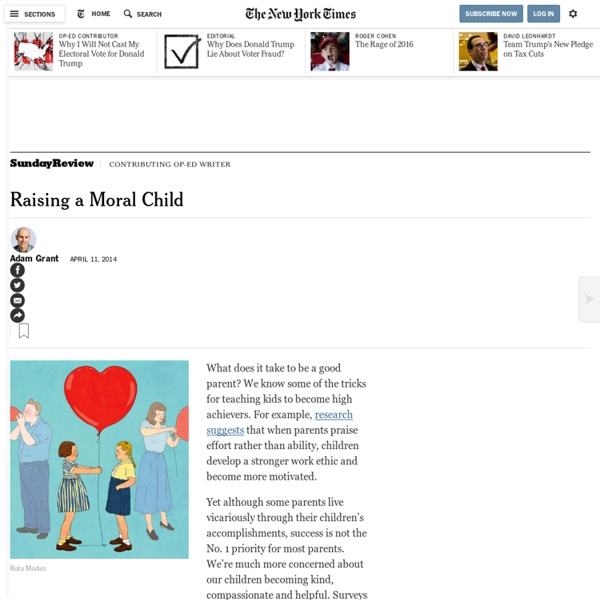Raising a Moral Child

Child Psychology - The Development of our Children
Child Psychology Child psychology involves looking at the issues, stages and various influences that a child experiences throughout their development into functioning adults. Child psychology can be divided into two main areas - the actual process of psychological development that the child goes through when growing up and the analysis and treatment of the various problems that a child may face throughout their development. During a child's development from infancy to adulthood, many influences are responsible for shaping their ways of seeing the world, their ideas of their own identity and their place within society. Factors such as environmental setting, family, community and the media all shape a child. In a perfect world, a child would develop successfully into a happily functioning adult, without any problems along the way, however this is not usually the case and many children find that they may struggle throughout the process. Related Links
Evolutionary developmental psychology
It further proposes that an evolutionary account would provide some insight into not only predictable stages of ontogeny, but into specific differences between individuals as well. Such a perspective suggests that there are multiple alternative strategies to recurring problems that human children would have faced throughout our evolutionary past and that individual differences in developmental patterns aren’t necessarily idiosyncratic reactions, but are predictable, adaptive responses to environmental pressures. Brief history[edit] Traditionally, evolutionary psychologists tended to focus their research and theorizing primarily on adults, especially on behaviors related to socializing and mating. There was much less of a focus on psychological development, as it relates to Darwinian evolution. Pioneers of EDP have worked to integrate evolutionary and developmental theories, without totally discarding the traditional theories of either. Some basic assumptions[edit] See also[edit]
Learning theory (education) - Wikipedia
Methodological behaviorism is based on the theory of only explaining public events, or observable behavior. B.F. Skinner introduced another type of behaviorism called radical behaviorism, or the conceptual analysis of behavior, which is based on the theory of also explaining private events; particularly, thinking and feelings. In behavior analysis, learning is the acquisition of a new behavior through conditioning and social learning. The three mains types of conditioning and learning: Classical conditioning, where the behavior becomes a reflex response to an antecedent stimulus.Operant conditioning, where antecedent stimuli results from the consequences that follow the behavior through a reward (reinforcement) or a punishment.Social learning theory, where an observation of behavior is followed by modeling. A multimedia classroom at Islington College, in the United Kingdom About accelerating the learning process About the mechanisms of memory and learning 45.
Related:
Related:



